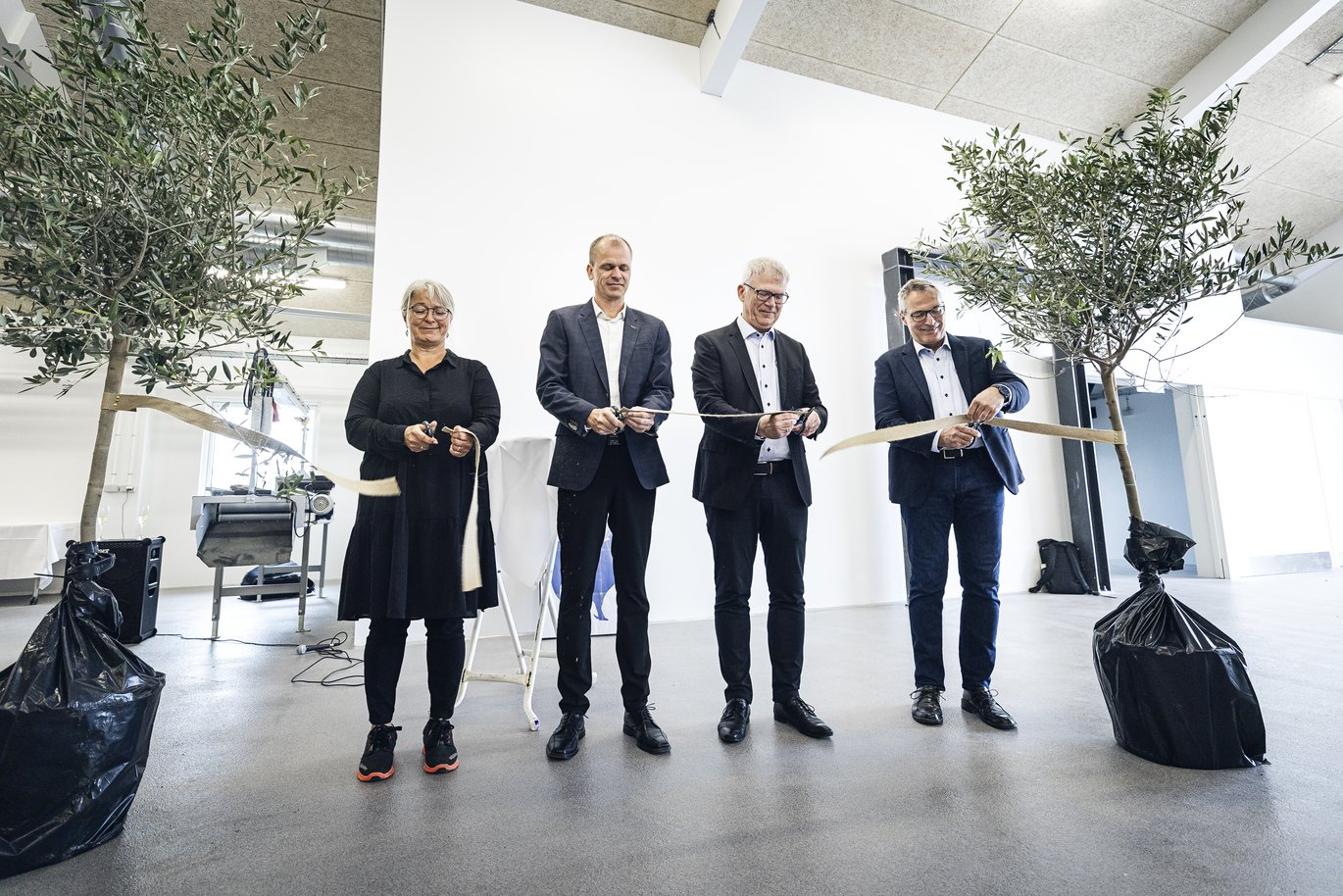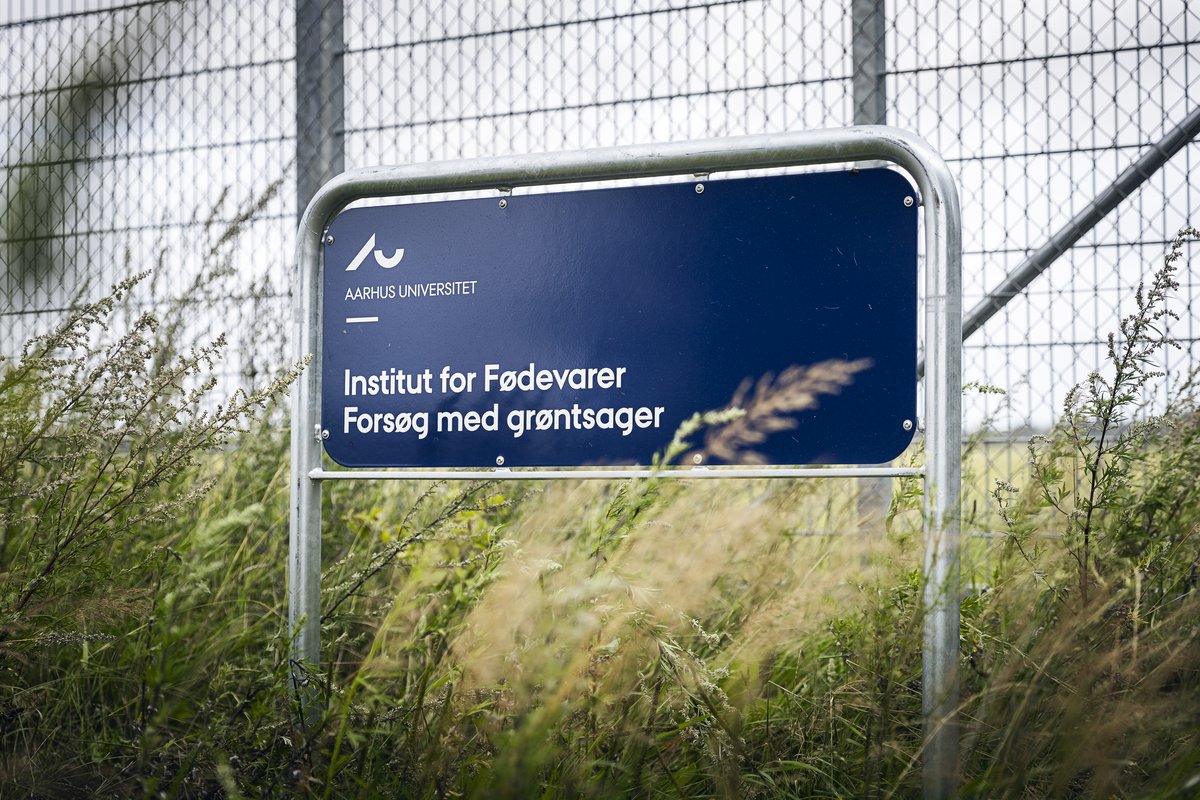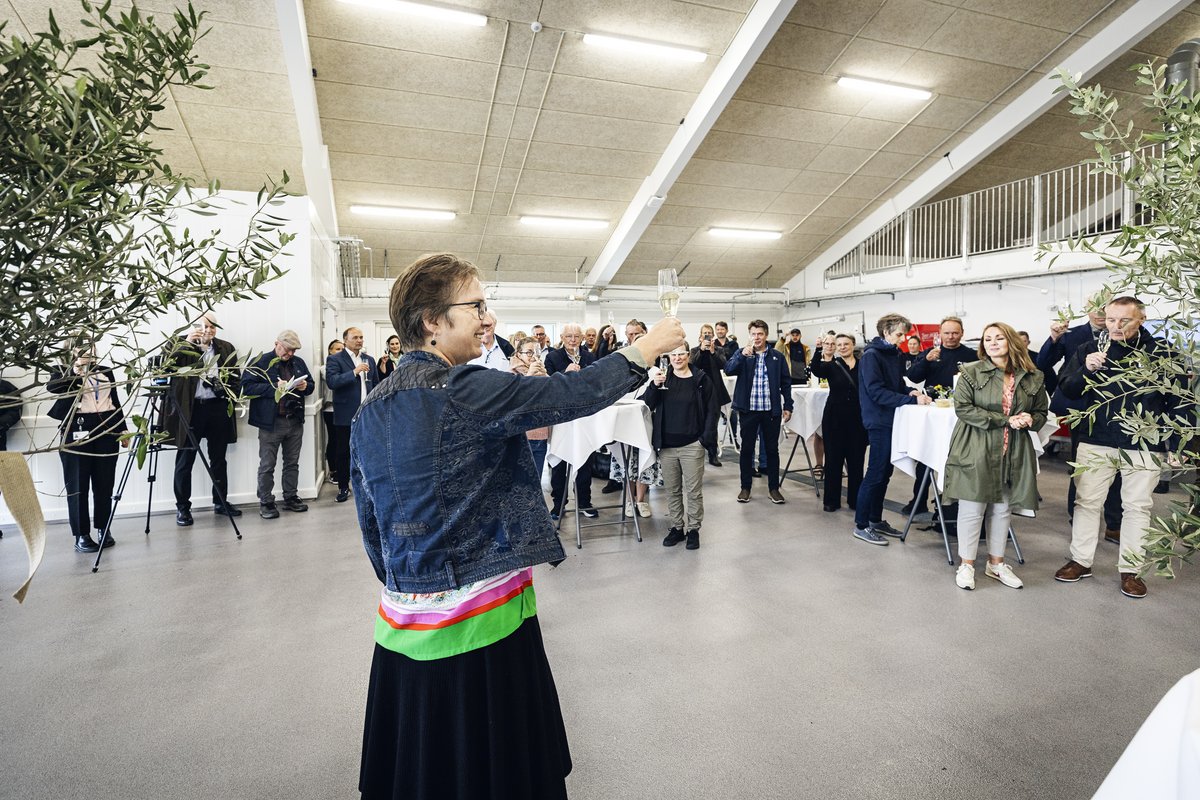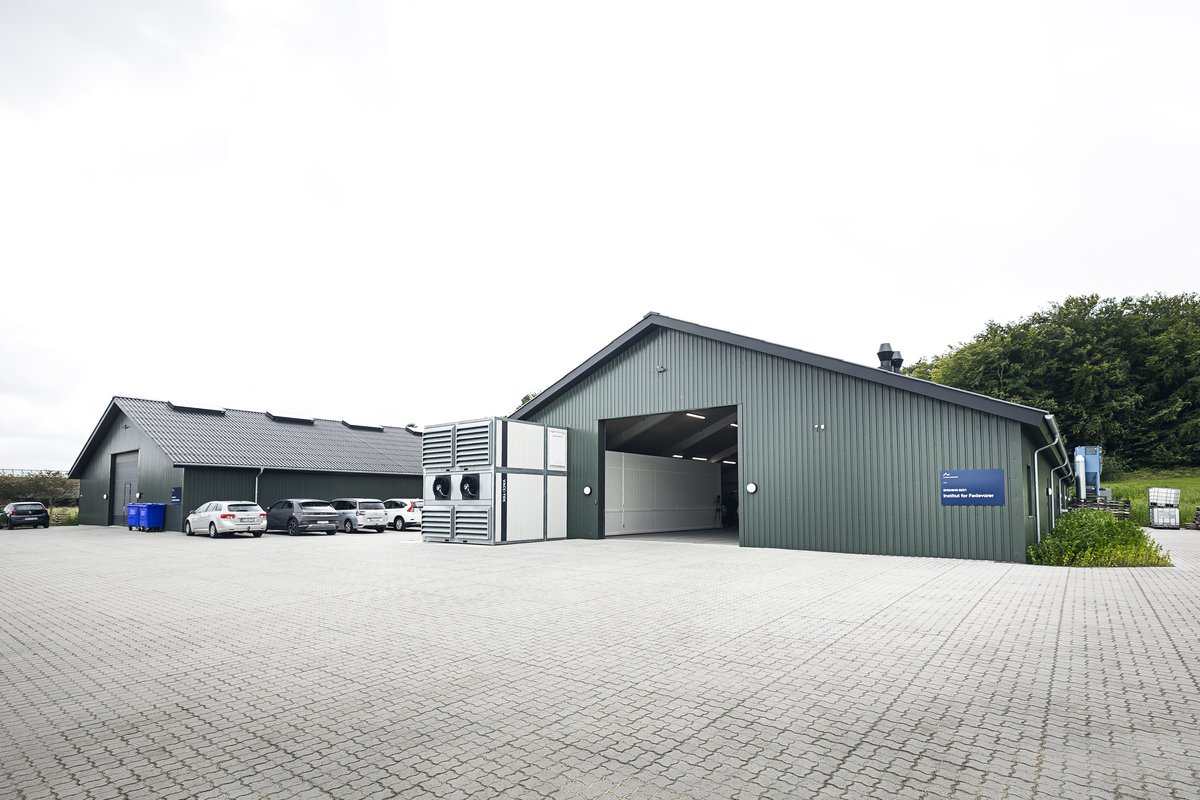Aarhus University strengthens roots in Central Jutland: New research station will help to future-proof Danish fruit and vegetable production
On a windy Tuesday in the beginning of August, a group of invited guests made their way to Aarhus University’s new research station in Auning, Djursland. The reason for this was the official opening of the recently completed Aarhus University facilities, which will be the base for Danish research into fruit and vegetables in the future.

In Denmark, it is primarily The Department of Food Science at Aarhus University, that is responsible for research and cultivation experiments in the area of fruit, berries, and vegetables. It is these research activities, that were previously based in Aarslev on Fyn, which have now moved to Djursland.
Here, research is conducted into everything from new methods to frost-proofing apple trees to measuring and modeling nitrate leaching and the emission of greenhouse gases from vegetable production.
The research station is part of The Department of Food Science, which is located in Agro Food Park in Skejby. This means that the entire Department's activities have now been relocated to Central Jutland.
Global and local university
The university’s roots in the region were one of the things Rector of Aarhus University, Brian Bech Nielsen, emphasised in his speech:
"I always say that Aarhus University is a global university. We aim to compete with the best – at the highest international level. Both in terms of education and research. But I never hide the fact that our roots are here in central Jutland," he said.
He also praised the collaboration with Norddjurs Kommune and the local business partners.
"When Aarhus University has grown significantly over the last 100 years, it is very much due to the support and collaboration we have with our local environment," he said.
Strengthens local green partnerships
The mayor of Norddjurs Kommune, Kasper Juncher Bjerregaard, was also invited to speak during the official opening.
He expressed his happiness that Aarhus University has chosen to strengthen the already existing partnership by placing research activities within the municipality:
"It is through partnerships we succeed. And right from the beginning, the partnership with Aarhus University has been based on common interests: green production, green visions, and a stronger educational environment within the green initiatives," he said.

The mayor also spoke highly about the placement of the new facilities:
"The location is far from random. Here at Det Grønne Museum and Gl. Estrup Herregårdsmuseum is an opportunity to create a synergy between our historical heritage and our gaze towards the future," he said.
The museum director of Det Grønne Museum, Anne Bjerrekær, agreed:
At Det Grønne Museum, we are very pleased to finally officially welcome you as neighbours and partners. Det Grønne Museum has nationwide responsibility for the cultural history of the hunt, the forest, agriculture and food all the way up until very recent history, so you don't have to be very imaginative to see that having you as neighbours can only be good," she said enthusiastically.
More important than ever before
The Dean of Technical Sciences, Eskild Holm Nielsen, emphasised the importance of the research that takes place in Auning in his speech:
“My faculty, The Faculty of Technical Sciences, has a strategic focus on the green transition of the food sector. Our wish is to be a driving force in the development and creation of sustainable solutions,” he said.
The research station focuses on research into the fruit and vegetables of the future for the benefit of business, society and consumers.
“By establishing this research station, we have delivered on one of the recommendations in the research- and development strategy for plant-based foods. Which was launched in 2020. This recommendation focused on strengthening the test facilities and demonstration sites in Denmark and specifically on strengthening the knowledge-based development of the plant-based food value chain through establishing a research station within field-based production of vegetables, legumes, fruits and berries,” he said.
The research station is an important part of the university's initiative supporting the Danish and European strategy for sustainable food production.
Major venture
Even though the last of the 2000 m2 buildings have just been completed, the move from Aarslev to Auning began in the spring of 2022, when research fields with vegetables and legumes were established.
Over the last year, fences, shelter and irrigation systems have been established. In addition, a fruit plantation with a wealth of species and varieties of fruit and berries has been planted, along with organic and conventional trials of for example onions, cabbages, peas and new types of beans.
In addition, a significant vegetative germplasm collection of vegetables, fruits and hobs has been relocated from Aarslev and is now part of the 37 hectares research fields.

"It has been a huge effort and is a fantastic venture. The research we can conduct here is essential towards creating a more climate-friendly production in Denmark," says Hanne Lakkenborg Kristensen, head of section for plants, food and sustainability at The Department of Food Science at Aarhus University.
The research station is important because the research that takes place at the site will help to future-proof the Danish fruit and vegetable production and facilitate the transition to a more climate-friendly production of food products.
"We need climate-friendly agriculture in Denmark – both for the Danes and for export. This is what we get when we develop production systems that account for fruit, vegetables, and legumes. There is a huge untapped potential in the food of the future. This is why AU Auning is so important," she explains.

